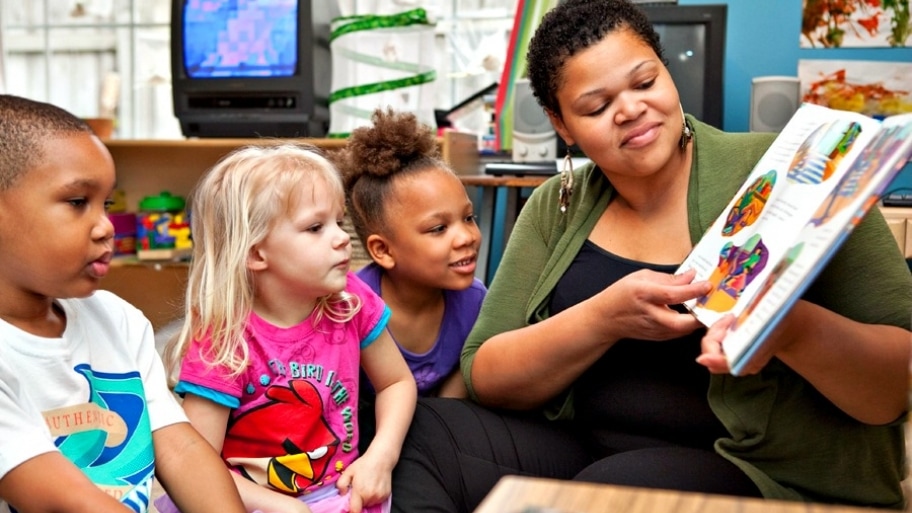KJIPUKTUK (Halifax) – Caring for a child is work, but society doesn’t seem to see it that way. Single parents on welfare are often portrayed as lazy or ‘getting a free ride’; as though their children effortlessly raise themselves.

Children are our future. They are arguably the most valuable resource in a community, and guiding them to full growth is an important responsibility. In studies on the effects of early child care, children aged 3+ consistently have positive consequences from enrollment in daycare/preschool programs, while children under 3 have had mixed results.Continuity of care (a small group of consistent and loving care providers) has been shown to be extremely influential in a child’s emotional development and may often be lacking in group child care environments with high staff turnover.
The next best thing to a parent caring for a child under 3 would be a Nanny. Staying in a comforting home environment with one person taking care of the children, making sure to provide enriching activities, healthy food, and stimulating conversation sounds ideal to a small child’s development. As a job with a high stress load and significant responsibility, nannies deserve a decent wage. According to neuvoo.ca (a labour market website) , the average wage for a nanny in Nova Scotia is $20/ hour. Less experienced workers may start at $11-13 an hour, while the highest end employees can receive up to $27 an hour. Wages for those working in licensed group child care facilities in NS were raised in 2016 to an average of $15-19 an hour.
With this in mind, I ask you to consider the life of a single parent. They supply the same (if not more) services in providing one on one care for children. Not all Nannies are required to buy groceries, plan menus, or prepare food. A Nanny also has the benefit of working on a schedule and having the protection of labour laws regarding rest, breaks, time off work, and vacation pay. A child that sleeps 12 hours a day leaves a 12 hour work day for the parent, coming to 84 hours per week.
If working for minimum wage at 84 hours a week, you would receive $2616 every month after taxes and deductions (with no overtime pay). At the ‘average’ of $20 an hour you would net $4472 per month after taxes. At the high end we’re looking at $5771 per month to take home.
Providing child care as a single parent on welfare is not in those income brackets.
The Department of Community Services values the work of a single parent on welfare looking after their own child at approximately $2.45 an hour ($825 per month). With more than one child you are bumped up to $2.60. Unlike a Nanny position, this ‘wage’ is expected to pay for the children’s clothing, food, diapers, shoes, transportation, and entertainment activities as well as your own cost of living. The federal Canada Child Benefit (assuming you are up to date on your taxes to qualify) is not a ‘bonus’ or ‘allowance’ in this situation, but a necessity.
Not everybody on welfare with children is necessarily parenting to the level expected from a professional child care worker. There are no educational requirements to have babies. As reports of abuse, mistreatment and neglect from the child care industry continue to pop up in news cycles year after year, it seems safe to say the levels aren’t always met in the professional sphere either . There are also many people in the welfare system who do have experience and/or education in child care, and provide high quality parenting to the best of their ability.
Parenting may not drive our economy in a direct money making sense but it is work, with a labour market precedent. It’s interesting that our society only views child care as valuable if it is someone else’s child.
If you can, please support the Nova Scotia Advocate so that it can continue to give voice to writers like Lenore, and to cover issues such as poverty, racism, exclusion, workers’ rights and the environment in Nova Scotia. A pay wall is not an option since it would exclude many readers who don’t have any disposable income at all. We rely entirely on one-time donations and a tiny but mighty group of kindhearted monthly sustainers.




Very well written, Lenore. Children are indeed our future and those who care for them day by day, particularly Parents, are doing the most important (hard) work on earth. As you are saying it is indeed time for Society and Governments to wake up to the reality and both support and reward the particular child caregivers you describe so well . Many thanks. Fr.Byron,TDC. (Yes, three children and seven grandchildren.) !
I am a mother with two children. I did work after I finished maternity leave and have a husband, who works and shares with parenting responsibilities (as well as other running the household). I returned to work as I am a health care professional with a good, union wage and benefits (including pension). It would not have been worth it (due to the cost of childcare) to return to work if I didn’t have the good fortune of having a job with a livable wage/benefits.
Still, it was hard. Being out of the house for 9.5 hours (including commute time), picking up the kids and trying to have some semblance of family time was a challenge. We were always tired.
I wanted to work only part time or job share – but there were no part time positions available and job sharing was not allowed (as the employer would have to pay two sets of benefits and there is no funding for that).
I can’t imagine the plight of a single parent whose choice is 1) work and pay almost their entire paycheque to child care and housing, leaving them with nothing; or 2) having to be on social assistance – which leaves them with so little.
People seem to think that single parents get “free money” from somewhere and they live like the mythical “welfare queens” perpetrated by the right wing Americans during the Reagan administration. This is patently false.
Living Wages, universal (affordable and accessible) childcare, affordable housing and universal, affordable education (from pre-K to university) would reduce the need for social assistance overall. For those that still require social assistance – an assistance rate that matches the basic cost of living is necessary to ensure a safe, healthy life for parent and child.
I did work (needed both the income and work/life balance), but I do not judge or begrudge those whose circumstances are different than my own who need to rely on social assistance. That is what our collective taxes and the wealth of the nation are for – for the physical and social infrastructure of a civilized society.